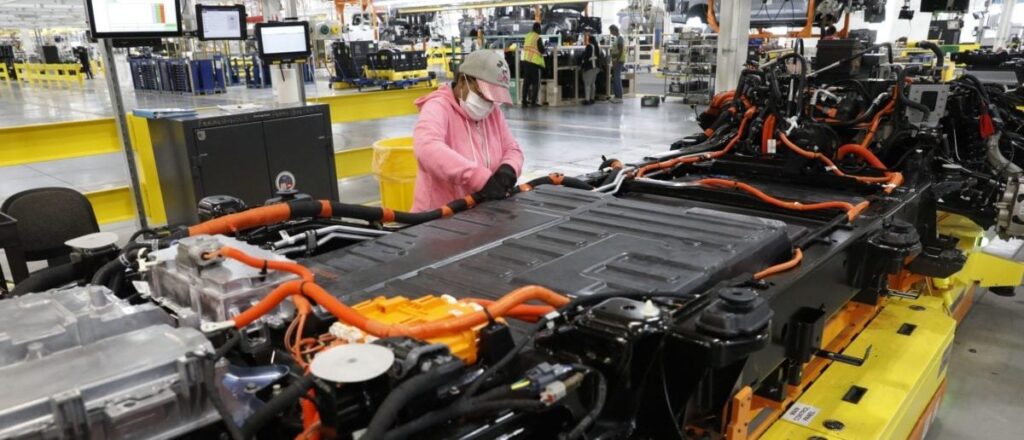A trio of battery trade groups have called on the United States to expand on the multibillion-dollar subsidy programs the Biden administration has introduced to support the industry, alleging that the handouts are necessary to compete with China, according to a newly released report.
To better compete with China, whose supply chain retains 90% of its economic value domestically thanks to its control of lithium mines, refinement facilities and manufacturing plants, the U.S. needs to boost domestic retention from 30% now to 60% by 2030, the Li-Bridge initiative, a public-private partnership comprised of battery trade groups and managed by the Department of Energy’s Argonne National Laboratory, reported Feb. 15. However, doing so would require nearly $40 billion in additional private investment in the industry — bringing private investment to $100 billion — which would only be possible if the U.S. government intervened to improve “investment conditions.” (RELATED: America’s Electric Vehicle Dream Plagued By Broken Charging Stations, Study Finds)
“Absent government intervention, the U.S.’s high dependence on vulnerable global supply chains for lithium battery materials and components threatens U.S. economic power, national security, and climate goals,” the report reads. It continues later that “without changes to U.S. government policies,” U.S.-based manufacturers will choose to import key components instead of producing or purchasing them domestically.
How can the USA build a more resilient and inclusive lithium battery supply chain?
Check out the report from Li-Bridge ⚡ https://t.co/318W9Ov1iF
Proud to be part of the US battery alliance with @naatbatt & @NYBatteryEnergy , convened by @ENERGY pic.twitter.com/NF1SIWZ8Ee
— New Energy Nexus (@NewEnergyNexus) February 20, 2023
One way to lure investors to the U.S. would be to offer additional production tax credits that offset the cost of making lithium batteries in the U.S., according to the Li-Bridge report. Current production credits offered by President Joe Biden’s signature Inflation Reduction Act (IRA) already recoup roughly 35% of the cost of lithium batteries used in electric vehicles, and are projected to cost more than $136 billion over the next 10 years, more than four times the government’s initial estimates.
The government could boost demand for lithium batteries by promising to purchase more products using lithium batteries and expanding existing consumer tax credits under the IRA to include trucks, buses and other forms of transportation, including aircraft, according to the report. The Treasury Department proposed a set of rules in late December that would interpret language in the IRA to permit foreign companies from allied nations to take advantage of tax credits, opening the door for foreign companies to see massive tax breaks under the new law.
Li-Bridge also recommended making itself a “formal public-private entity” that would be responsible for implementing its own recommendations, with a “central program management office” responsible for progress reports to the federal government and coordination with foreign allies.
If the status quo is maintained, the U.S. will generate 100,000 direct jobs and $33 billion in economic activity from lithium battery production, Li-Bridge estimates. Hitting the organization’s target of 60% domestic retention would generate an additional $17 billion in economic value and 40,000 direct jobs.
All content created by the Daily Caller News Foundation, an independent and nonpartisan newswire service, is available without charge to any legitimate news publisher that can provide a large audience. All republished articles must include our logo, our reporter’s byline and their DCNF affiliation. For any questions about our guidelines or partnering with us, please contact licensing@dailycallernewsfoundation.org.


